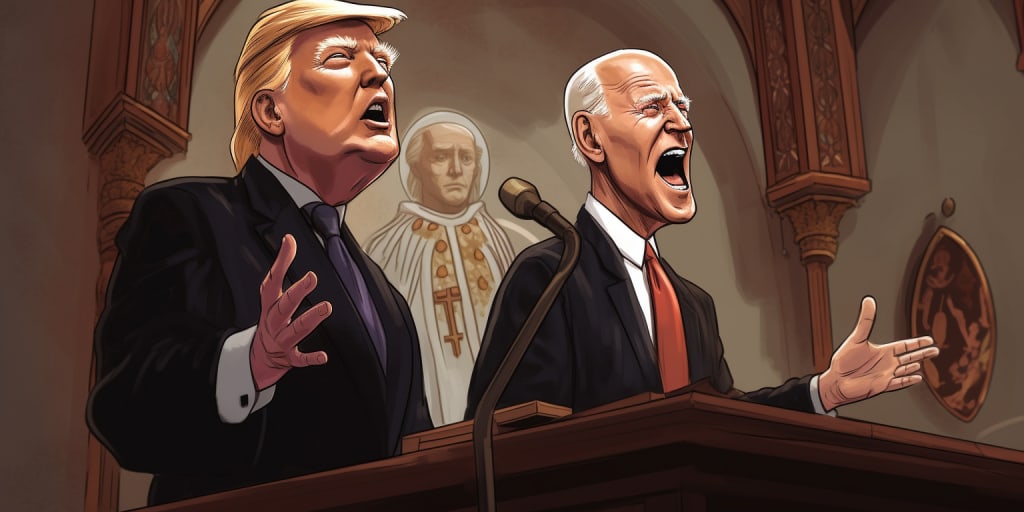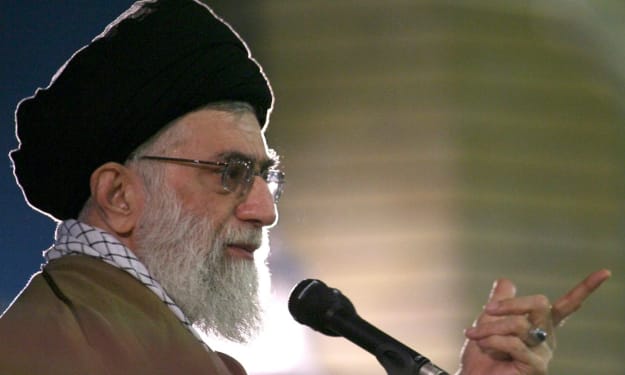Losing Faith: The Decline of Religion and Rise of Political Polarization in America
As religious devotion dwindles, allegiance to political factions swells, overshadowing alternative sources of belief, ethics, and social cohesion. But it is it enough?

In the United States, there has been a significant decline in religious affiliation alongside a surge in political polarization. Observers speculate that as religious devotion dwindles, allegiance to political factions swells, leading to a self-perpetuating loop wherein political divisions overshadow alternative sources of belief, ethics, and social cohesion.
The Erosion of Religious Affiliation
The Pew Research Center reports that the United States has experienced a marked decrease in religious affiliation over the past few decades. By 2021, 29% of Americans professed no religious affiliation, compared to 16% in 2007 (Pew Research Center, 2021). This trend is particularly pronounced among millennials, with 36% identifying as religiously unaffiliated in 2021 (Pew Research Center, 2021). This decline is also consistent with global trends in religious affiliation, particularly in Western societies (Voas & Chaves, 2016).
The Surge in Political Polarization
Simultaneously, the nation grapples with a sharp intensification of political polarization. Data from the Pew Research Center attests to a widening of partisan divides on various issues since the early 1990s (Pew Research Center, 2020). This chasm manifests in electoral behaviors, policy predilections, and daily life, exemplified by a growing aversion to the prospect of one’s children marrying an individual affiliated with an opposing political party (Iyengar et al., 2019).
The Intersection of Religion and Politics
A growing body of research suggests that the decline in religious affiliation and the rise of political polarization are intertwined phenomena. Some studies postulate that the increase in religiously unaffiliated individuals has led to an alignment of religious convictions with political identities (Malka et al., 2017). Conversely, other research posits that political polarization may be the catalyst for the decline in religious affiliation, as political partisanship permeates Americans’ identities and obliterates alternative avenues of social identification, including religion (Margolis & Sances, 2020).
These findings indicate that the dwindling of religious affiliation may engender heightened political polarization, which subsequently triggers a further erosion of religious devotion. This self-perpetuating loop has significant ramifications for belief systems, ethical values, and social cohesion within the United States.
Politics as a Substitute for Religion
While political affiliation may fill some of the void left by declining religious devotion, it is worth considering whether political allegiance is an inadequate substitute for religious faith or spirituality. Research indicates that humans may have an innate predisposition towards religious belief (Bloom, 2012), suggesting that political partisanship may not fully satisfy this intrinsic need. Additionally, religion often provides a sense of community, moral guidance, and existential meaning (Pargament, 1997), elements that may not be as readily available in the realm of politics.
Social Trust and Cohesion Under Threat
As politics infiltrate American identity, it stands to reason that political ideology will assume an increasingly salient role in shaping personal values and forging social connections. Some studies correlate political polarization with diminishing social trust and burgeoning animosity towards members of rival political parties (Levendusky, 2018). This erosion of social trust and intensification of animosity may precipitate a disintegration of social cohesion and a weakening of alternative forms of social identification, such as religious faith.
Moreover, a lack of social trust can have severe consequences for democratic institutions, as citizens may become less likely to cooperate with those of differing political beliefs (Putnam, 2000). This can lead to a breakdown in civic engagement, community building, and problem-solving. Ultimately, the self-perpetuating loop of declining religious affiliation and rising political polarization may have dire consequences for the fabric of American society.
Conclusion
The decline in religious affiliation and the rise of political polarization within the United States appear to be inextricably linked, forming a self-reinforcing loop with profound implications for belief systems, moral values, and social cohesion. While political affiliation may provide a sense of identity and community for some, it is an inadequate substitute for religious faith or spirituality.
As political polarization threatens to overshadow alternate forms of belief and identification, it becomes imperative for us to acknowledge and address this complex issue. By fostering interfaith and inter-political dialogue, promoting media literacy, and encouraging civic engagement, we can work towards bridging the divide and facilitating greater understanding, tolerance, and unity among our fellow Americans.
References
Bloom, P. (2012). Religion, morality, evolution. Annual Review of Psychology, 63, 179–199.
Iyengar, S., Sood, G., & Lelkes, Y. (2019). Affect, not ideology: A social identity perspective on polarization. Public Opinion Quarterly, 83(4), 814–840.
Levendusky, M. S. (2018). Politics in place: Social networks and partisan identity. Princeton University Press.
Malka, A., Lelkes, Y., Srivastava, S. B., Cohen, A. B., & Miller, D. T. (2017). The association of religiosity and political conservatism: The role of political engagement. Political Psychology, 38(5), 881–899.
Margolis, M. F., & Sances, M. W. (2020). The political consequences of white evangelical Protestantism. Journal of Politics, 82(1), 102–117.
Pargament, K. I. (1997). The psychology of religion and coping: Theory, research, and practice. Guilford Press.
Pew Research Center. (2020). Political polarization in the American public.
Pew Research Center. (2021). In U.S., decline of Christianity continues at rapid pace.
Putnam, R. D. (2000). Bowling alone: The collapse and revival of American community. Simon and Schuster.
Voas, D., & Chaves, M. (2016). Is the United States a counterexample to the secularization thesis? American Journal of Sociology, 121(6), 1717–1753.






Comments
There are no comments for this story
Be the first to respond and start the conversation.